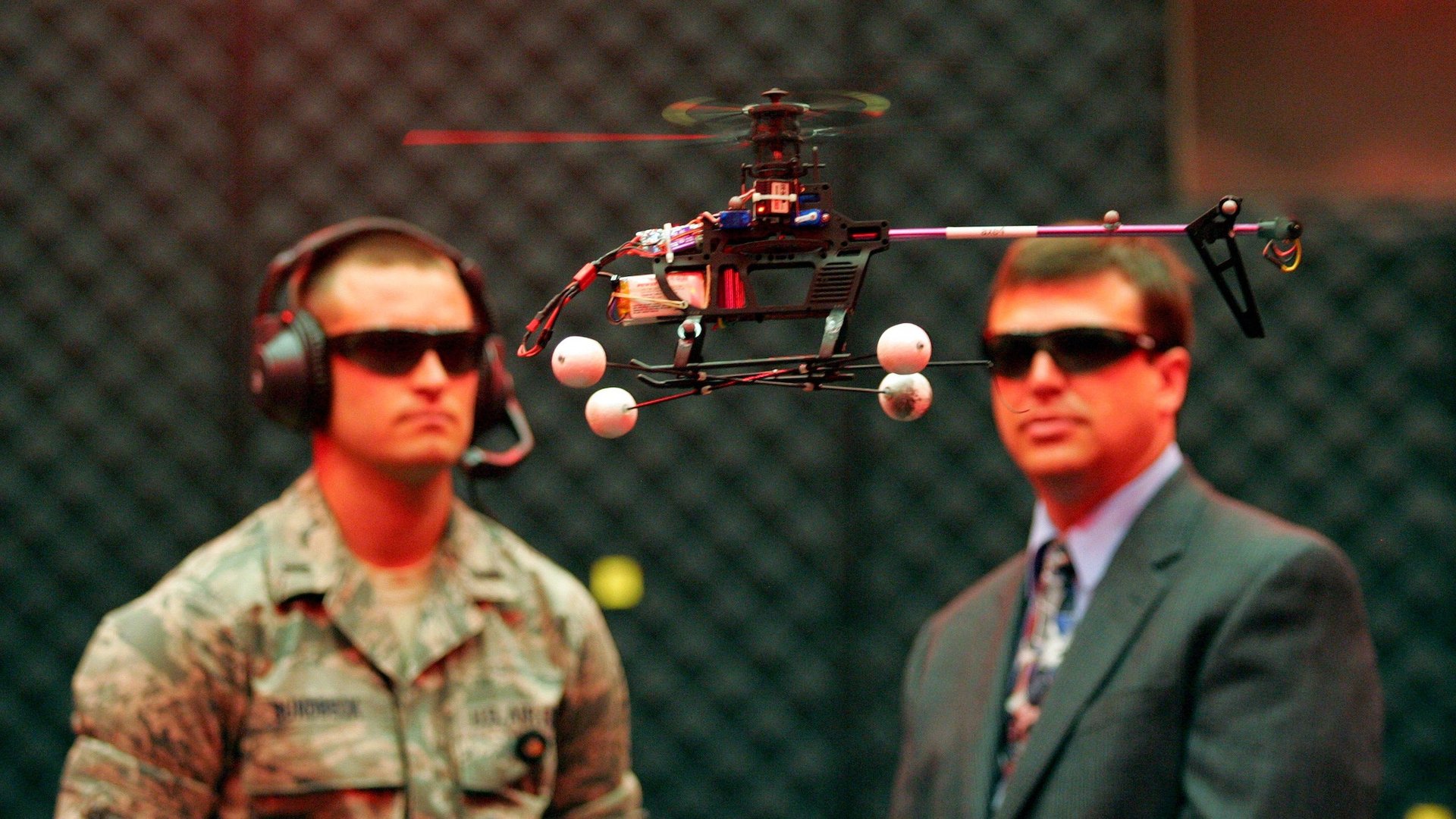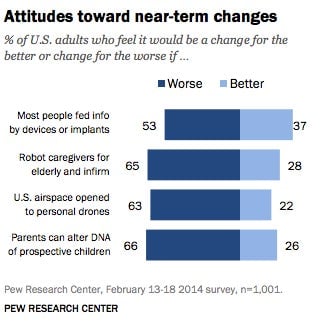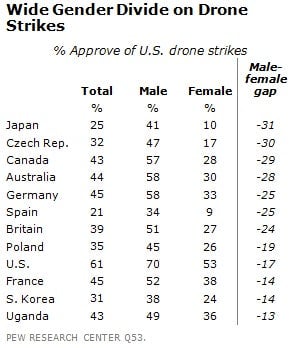Americans think drones are creepier than Google Glass
Americans are, unsurprisingly, distrustful of unmanned aerial vehicles, or drones, according to new data from Pew Research Center. When asked about the possibility of drones (commercial and personal) being allowed to fly in most US airspace, 63% of adults surveyed said such a policy would be a change for the worse; only 22% thought it would be for the better.


Americans are, unsurprisingly, distrustful of unmanned aerial vehicles, or drones, according to new data from Pew Research Center. When asked about the possibility of drones (commercial and personal) being allowed to fly in most US airspace, 63% of adults surveyed said such a policy would be a change for the worse; only 22% thought it would be for the better.
Pew asked its survey sample about four hypothetical future technologies. The least upsetting turned out to be the prospect of people walking around with devices or implants drip-feeding them information. Robot caregivers for the elderly and infirm, and “designer babies” with altered DNA, had more naysayers than drones, but the aircraft also had the fewest outright supporters:

Also unsurprisingly, older Americans were more suspicious of drones than younger ones. While only 16% of those 65 and older could see benefits to drone ubiquity, 30% of 18-29 year olds predicted positive effects. Women had greater hesitation as well: Only 18% of female respondents said that drone use in the US would be a positive thing, compared to 27% of men. A 2013 Pew survey found a similar gap in global approval of US drone strikes.

While men are often more likely to approve of military violence than women, the gap was considered unusually large. It’s not clear why women are more anti-drone than men, but it shouldn’t come as a surprise that Americans as a whole are down on drones—there aren’t a lot of friendly drones around to make a good impression.
For now, most drone use in the US is strictly personal: Until the Federal Aviation Administration releases guidelines for commercial drone use, their legality is up for debate. But with FAA regulations expected in 2015 and several companies already poised to take advantage of the tech, Americans may soon have a better idea of the positive changes that drones could bring.